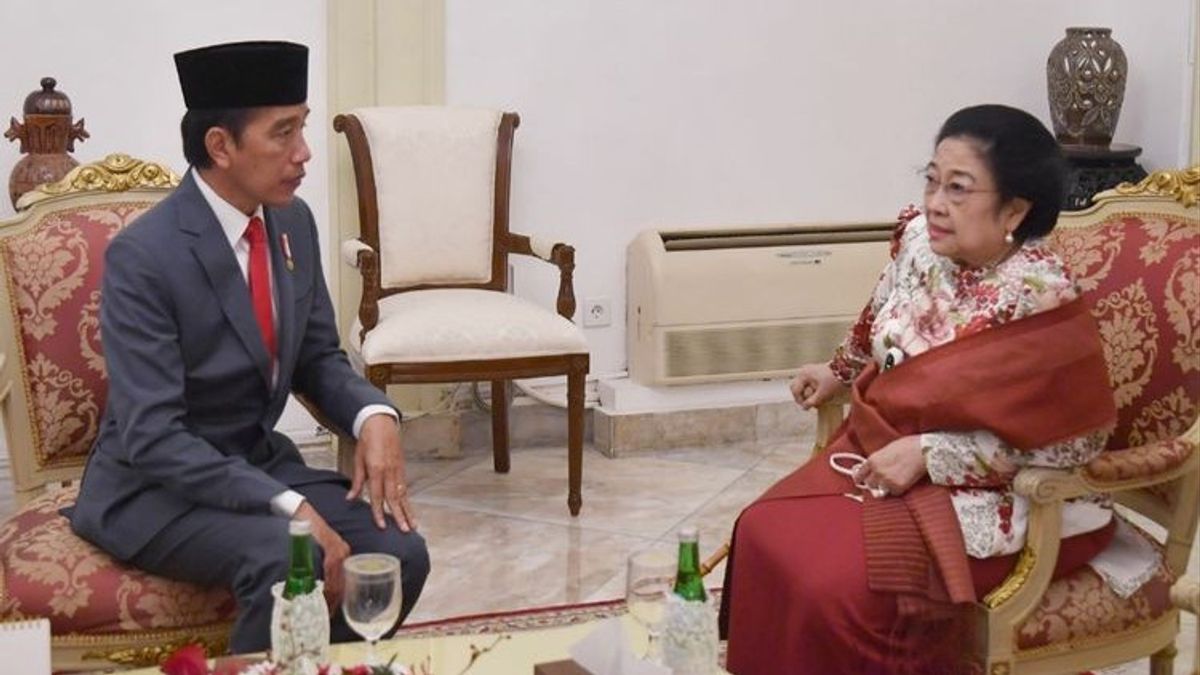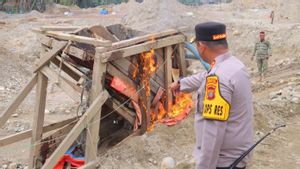JAKARTA - The revocation of MPRS Decree Number XXXIII/MPRS/1967 concerning the revocation of State Government Power from President Soekarno has a long tail. The state was asked to apologize to Bung Karno and his staff.
Political observer at Al Azhar University Indonesia, Ujang Komarudin, questioned the urgency of the PDI-P (PDIP) request. According to him, an in-depth study and objectiveity is needed in addressing this matter. "Yes, the case must be seen comprehensively, an in-depth investigation is carried out regarding the real problem. I cannot say whether or not I apologize," Ujang told VOI, Friday, November 11.
As for the MPR Decree Number XXXIII/MPRS/1967, it was stated that Soekarno issued a policy that was considered beneficial for a number of figures of the September 30 Movement (G30S) which referred to the Indonesian Communist Party (PKI) rebellion.
The MPR Decree Number XXXIII/MPRS/1967 was later confirmed to have been revoked. President Jokowi said it on Monday, November 7.
Responding to this, PDIP DPP chairman Ahmad Basarah asked the state to apologize to Bung Karno and his family. He considered the Republic of Indonesia to have acted unfairly to Bung Karno during his lifetime.
Deputy Chairman of Commission III of the DPR Gerindra faction Desmond J Mahesa responded to the request. Desmond said the apology to Bung Karno and his family was too excessive and far-fetched. Soon Desmond was attacked by PDIP Purworejo cadres.
According to Ujang, the PDIP's furious attitude was influenced by the title of the ruling party. So, he continued, when he felt hurt, the other party was considered guilty. On the one hand, PDIP should have been able to see this issue more rationally.
"In the past, maybe the problem was considered normal because PDIP was not in power, but when it came to power and some said that so it was considered offensive, that was the history of the owners of the winners," he said.
"So the question is whether the country can intervene in that matter, yes I see that it depends on who is in power," continued Ujang.
Ujang also believes that PDIP should conduct an internal study in response to the presence of MPR Decree Number XXXIII/MPRS/1967 until it is finally revoked. A study that can produce a response from the repeal of the stipulation is based on objective views in the past and today.
Regarding deposits from other parties, Ujang sees that there is no need to elaborate if it can be explained through the results of the study. "Because the response of outsiders is considered friendly, even though PDIP certainly has its own argument regarding the matter. What concerns the state must be objective and rational based on the provisions of the law," he said.
The English, Chinese, Japanese, Arabic, and French versions are automatically generated by the AI. So there may still be inaccuracies in translating, please always see Indonesian as our main language. (system supported by DigitalSiber.id)













